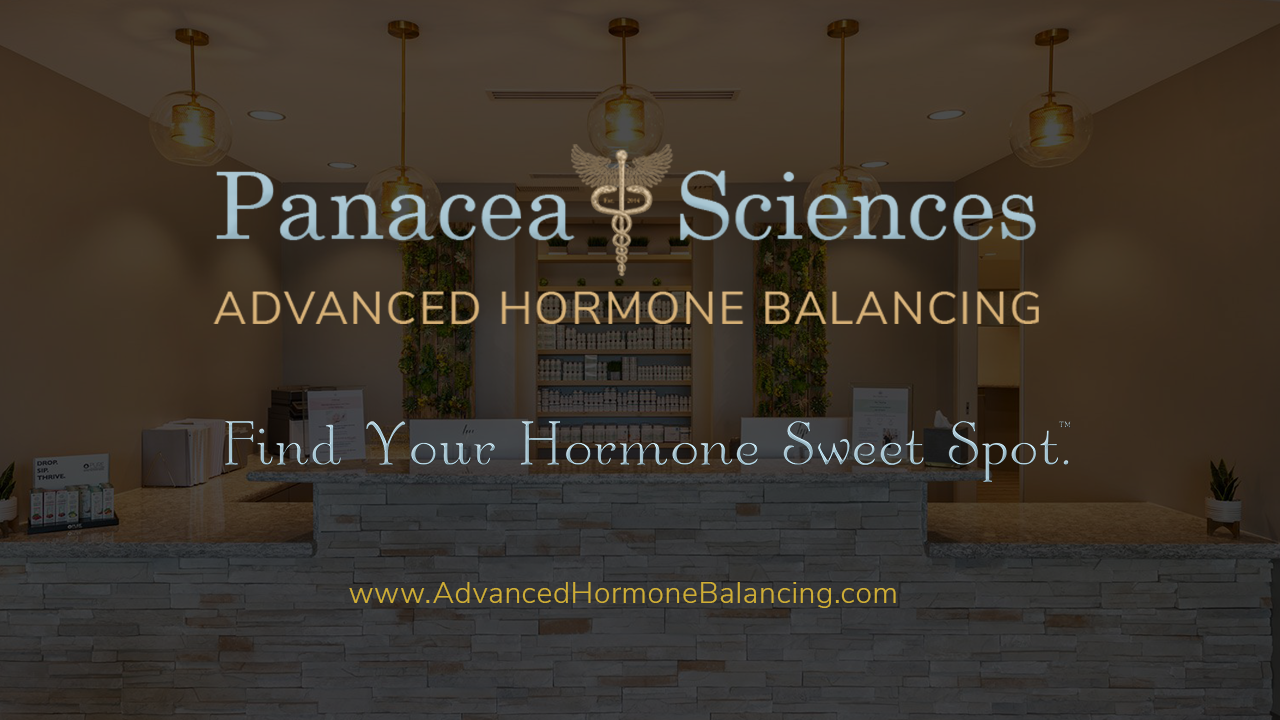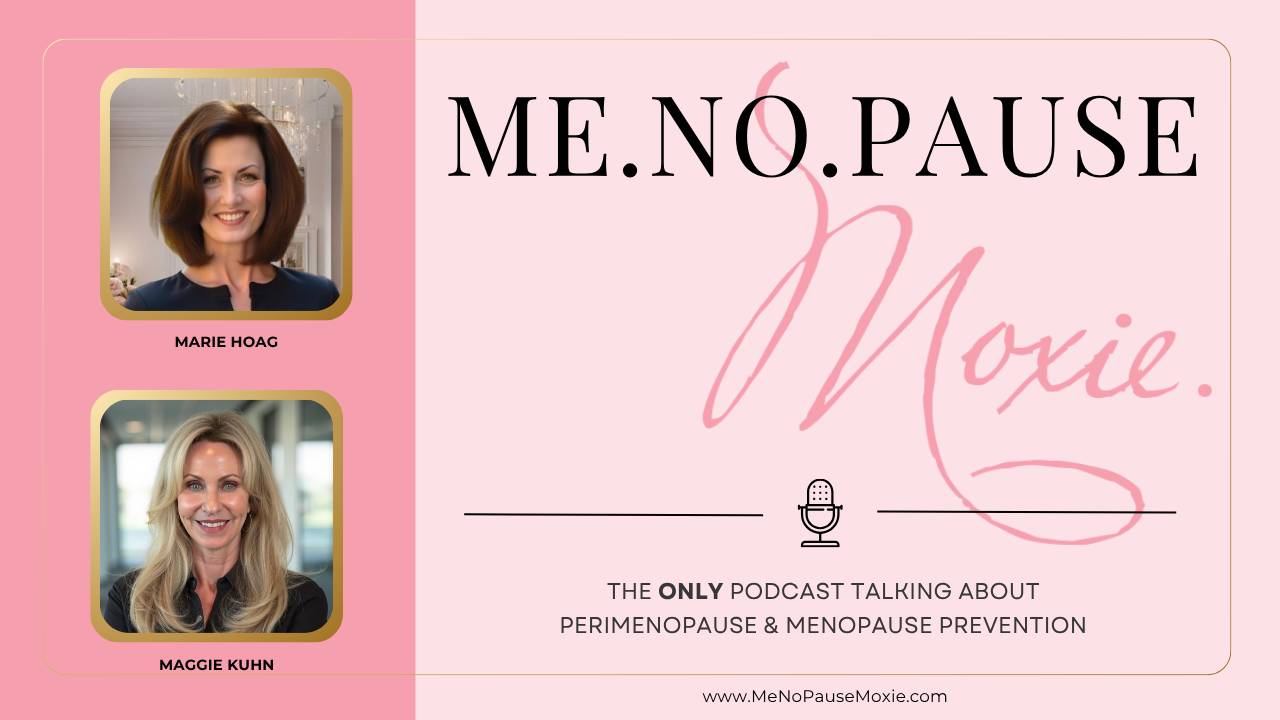How Estrogen Impacts Headaches

How Estrogen Impacts Headaches
(Clinical Indicator #1)
I thought chronic tension headaches were just a regular part of everyday life. I began experiencing them about the time I started my period around puberty and got them almost every day. They were debilitating, to say the least. The headaches I experienced were tension pressure on my forehead and temples — and most of the time they throbbed and kept me from participating in my daily life due to the intense pulsing pain.
My tension headaches were so dependable and regular that I took aspirin or some sort of pain reliever every day even if I didn’t have a headache yet. I carried pain medication with me all the time. When I look back on how miserable my headaches made me feel, I realize that they affected my quality of life and how I interacted with people. I also didn’t realize at the time how they impacted my relationships, my job, my diet, my self-esteem, and my self-trust.
Both of my parents experienced regular tension headaches and told me they “ran in the family” and they were something that I just had to deal with, so I did. Many years later, I found out my headaches were caused by a couple of things, well mostly one thing — low estrogen, which also created a cascade of behaviors that also impacted my susceptibility to getting chronic tension headaches.
I discovered in my late thirties when I started hormone replacement therapy that my chronic tension headaches were due to low estrogen. When I started taking estrogen, headaches were one of the first things that went away for me. None of my doctors ever mentioned that low estrogen levels could be the trigger for my headaches.
I also found out later in my research on estrogen that estrogen deficiency caused me to have sugar and simple carbohydrate cravings — something my parents also told me “ran in the family”. If I didn’t have a headache, I could create one by what I ate. I knew there was a direct relation between my diet and headaches but I didn’t realize just how much estrogen, or the lack of it, was the main cause of them. I also discovered in my research and personal experience that low estrogen causes sugar cravings and the more sugar women eat; the lower circulating estrogen becomes. I wish I would have known this when I was younger.
Daily headaches affect millions of women worldwide. A notable trigger for these headaches in women is low estrogen levels but no one really talks about it. Though there is plenty of data that suggests estrogen deficiency causes chronic headaches, I have never had a doctor tell me my headaches were caused by low circulating estrogen. The standard of care approach is to take a slew of medications of which some of the side effects of those medications were headaches.
Understanding the relationship between estrogen deficiency and headaches could help you take control of them. Here are some things to consider.
Estrogen’s Link to Headaches
Estrogen, a primary female sex hormone, plays a crucial role in the regulation of various physiological processes, including the menstrual cycle, PMS, perimenopause, and menopause. It also modulates pain perception and inflammatory responses in the body. Estrogen influences the central nervous system where it affects the release of neurotransmitters and modulates pain pathways.
The Impact of Estrogen Withdrawal
Several studies have indicated a strong correlation between the drop in estrogen levels and the onset of headaches, often referred to as 'estrogen withdrawal headaches’. The data is out there but no one appears to make the connection between the two instead headaches are treated with drugs and hormonal contraception which puts women into chemical menopause. The estrogen withdrawal phenomenon can get worse during the late luteal phase of the menstrual cycle, immediately before menstruation when estrogen levels sharply decline, making headaches worse and can lead to menstrual migraines.
Additionally, in other life phases where estrogen is low, such as postpartum and perimenopause, women can experience worsening headaches. During these times, the body’s natural estrogen levels drop even further which often triggers chronic tension headaches.
Mechanisms of Estrogen-Induced Headaches
The exact mechanisms through which estrogen deficiency triggers headaches are complex and multifaceted. Estrogen modulates serotonin levels, a key neurotransmitter involved in the pathophysiology of headaches. Estrogen deficiency leads to a decrease in serotonin, which increases a woman’s susceptibility to headaches.
Furthermore, estrogen affects the vascular system; its withdrawal leads to changes in cerebral blood flow that cause headaches. Estrogen also regulates the expression of endogenous opioids that are involved in pain control, suggesting that low estrogen levels could disrupt pain modulation and threshold, leading to increased headache activity.
It Wasn’t Just Me
When I started my career as a clinical hormone coach about 20 years ago, I began tracking clinical indicators female patients experienced throughout their menstrual cycles. Clinical indicators are positive and negative symptoms women experience on a regular basis. I use a clinical indicator assessment tool to measure 50 symptoms women rate on the morning of each hormone blood draw once every four months. Over the years and several thousand women, I’ve been able to see how hormone levels — especially estrogen — impact how a woman feels mentally, emotionally, behaviorally, and physically.
When I constructed the clinical indicator assessment, the first on the list was headaches. Headaches are one of the most common complaints of estrogen-deficient women. I noticed that when estrogen was low, 90% experienced chronic tension headaches. What was more eye-opening was that when these women restored their estrogen levels, their headaches were no more. What I found over the next two decades is that women who have plenty of circulating estrogen and women who have too little estrogen do not experience the same quality of life. Chronic tension headaches are rare for women who maintain healthy blood levels of estrogen.
The Conventional Medicine Approach to Headaches
Most doctors are not educated about estrogen, the side effects of estrogen deficiency, or what to do to fully restore it. Though there is plenty of data that suggests estrogen deficiency causes chronic tension headaches, the treatment is not to restore low estrogen. Instead, women are typically prescribed some sort of medication or psychotropic drug to treat headache pain which has their own set of side effects women have to deal with. In addition, no one suggests laying off sugar and simple carbohydrates that contribute to the suppression of blood estrogen levels. Never is there a conversation with the treating doctor about checking estrogen levels so you will have to educate yourself about estrogen.
What To Do
The link between estrogen deficiency and headaches is well established, with a significant body of evidence supporting the role of estrogen deficiency in the triggering of headache episodes. As research progresses, new insights on how estrogen deficiency is linked to headaches are emerging, offering hope to women of all ages suffering from regular headaches. But I’m not convinced doctors will restore women’s estrogen to prevent them so it will be up to you to do something about it.
What You Can Do
If you are experiencing perimenopause or menopause and are getting chronic tension headaches, check to see if your circulating estrogen is low by taking a blood test. Ask your doctor to order a female hormone panel. While you are at it, on the morning of your blood draw, take the clinical indicator assessment (The Hormone Balance Test) to see what your score is in relation to your estrogen levels. How a woman feels works in real-time with her estrogen levels.
References
Eichner E. Estrogen-deprivation headaches. Obstet Gynecol. 1968 Aug;32(2):294. PMID: 4911912.
Martin, V. T., & Behbehani, M. M. (2006). Ovarian hormones and migraine headache: Understanding mechanisms and pathogenesis—Part I. Headache: The Journal of Head and Face Pain, 46(1), 3-23.
Oh K, Jung KY, Choi JY, Seo WK, Park KW. Headaches in middle-aged women during menopausal transition: a headache clinic-based study. Eur Neurol. 2012;68(2):79-83. doi: 10.1159/000336838. Epub 2012 Jul 3. PMID: 22759408.
Silberstein, S. D., & Merriam, G. R. (2000). Sex hormones and headache. The Journal of Pain, 1(2), 77-80.
MacGregor EA. Estrogen Replacement Therapy and Women with Migraine—What's New? Journal of Headache and Pain. 2020. PMID: 32740627.

Stay connected with me.
Join my mailing list to receive the latest news and updates on blog posts, new podcast episodes, in-person and online events, appearances, webinars, and programs.








